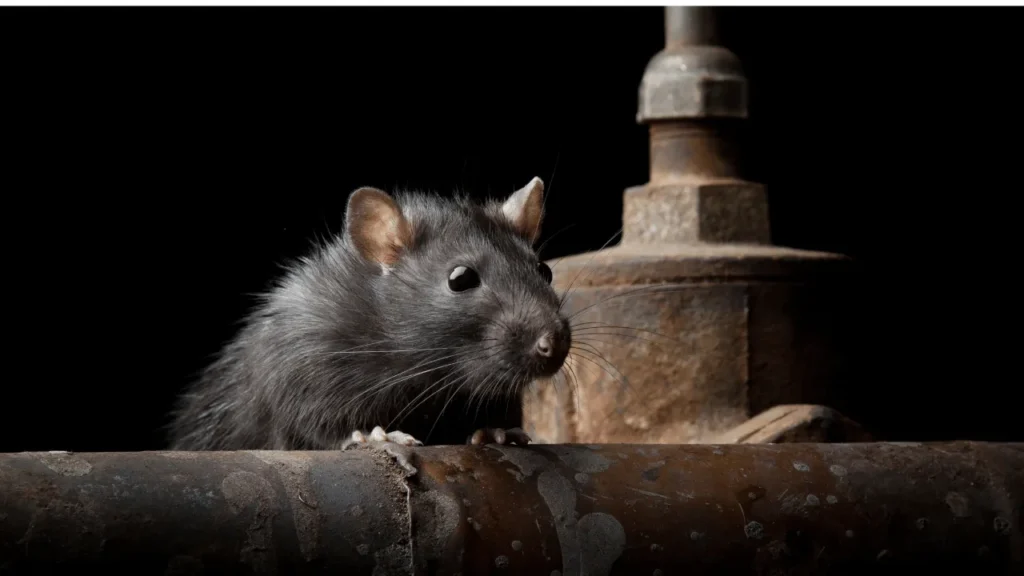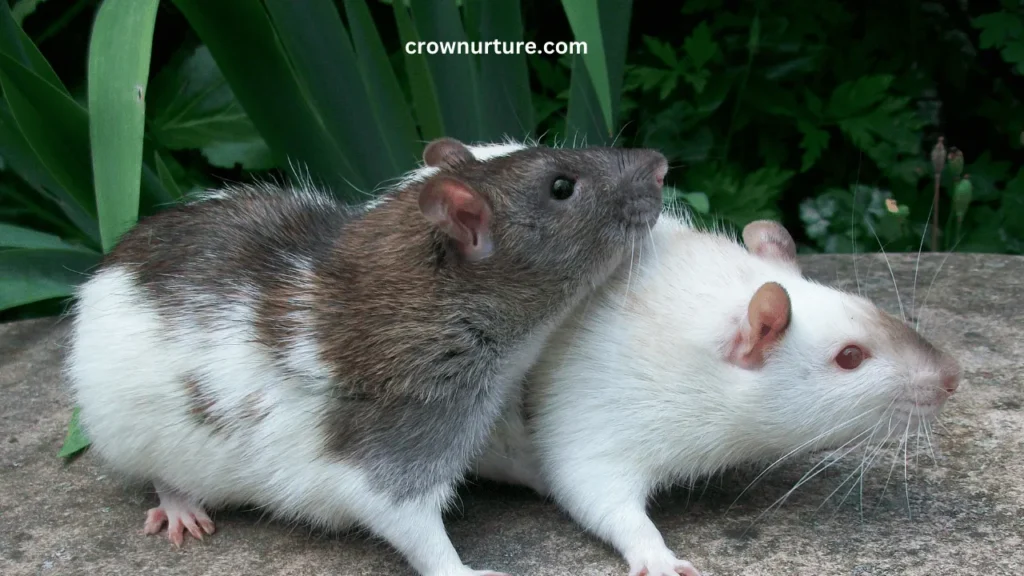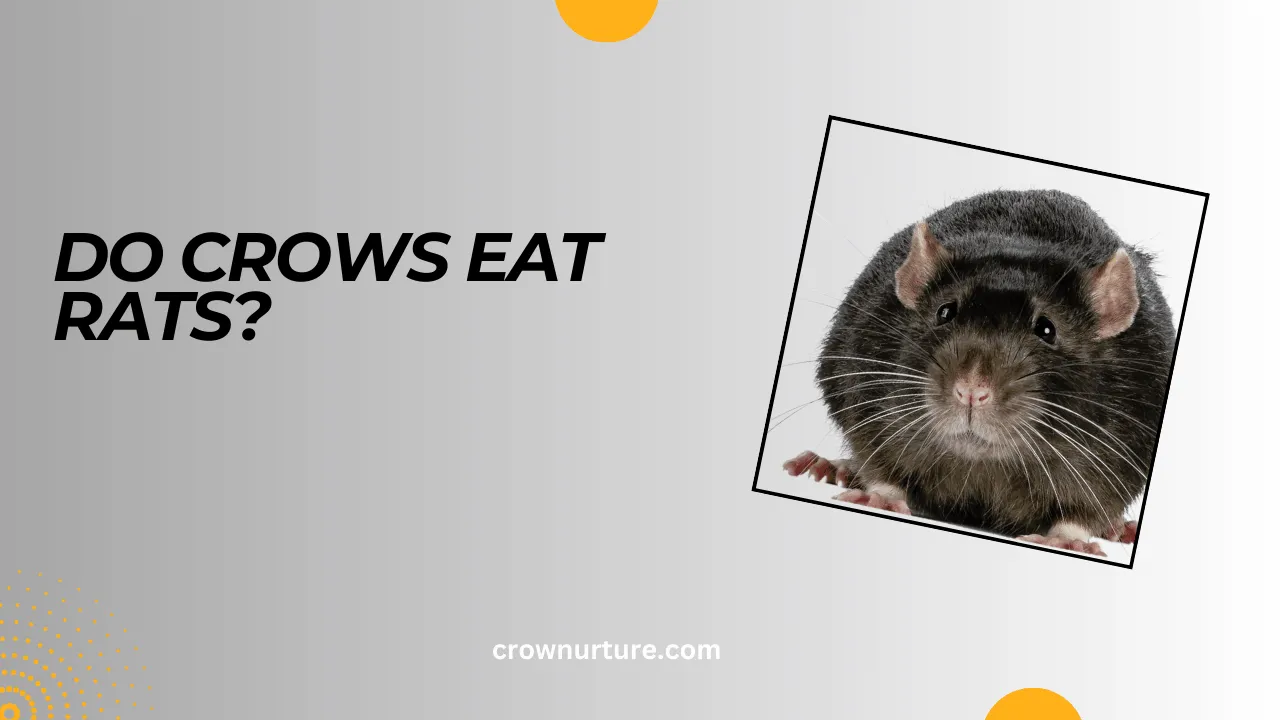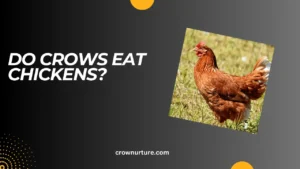Crows are among the most intelligent and adaptable birds in the animal kingdom. From solving complex puzzles to mimicking human voices, these black-feathered birds continue to amaze researchers and wildlife enthusiasts alike.
However, beyond their intelligence lies another fascinating trait—their opportunistic feeding habits. Known for eating just about anything, from fruits to small animals, a question arises: Do crows eat rats?
This question is especially relevant in urban areas, where rat populations are a persistent problem, and crows have become a common sight. Could these clever birds help us control rodents, or is this just a myth fueled by observations and anecdotes?
Understanding the role of crows as potential predators offers insight into their ecological importance and relationship with the urban environment. In this blog post, we’ll explore the dietary habits of crows, examine whether they prey on rats, and discuss the factors that influence this behavior.
Additionally, we’ll highlight the role crows play in natural pest control and address some misconceptions about their feeding habits. Stick around to uncover whether crows can truly be nature’s unexpected solution to rodent problems.

Contents
1. Crow Diet and Foraging Behavior
Crows have a highly diverse diet, which allows them to survive and thrive in various environments.
- Omnivorous Nature: Crows are omnivores, meaning they eat both plants and animals. Their diet includes fruits, seeds, insects, carrion (dead animals), garbage, and even small animals like lizards, frogs, and birds. This wide range of food preferences makes them highly adaptable to urban, rural, and wild settings.
- Opportunistic Feeding: One of the defining traits of crows is their opportunistic nature. They take advantage of whatever food sources are available, whether it’s scavenging leftovers in trash bins or hunting live prey. This behavior helps them survive in cities where natural food sources might be limited.
- Food Preferences: Crows prioritize food based on its energy content and nutritional value. They are known to favor protein-rich food like meat, small animals, and insects, especially when feeding their young. Rats, therefore, could be an option, depending on availability and need.
The crow’s adaptability and opportunistic foraging behavior make it possible for them to prey on rats, but how often does this occur? Let’s explore further.
2. Rat Predation by Crows
While crows are not commonly considered primary predators of rats, they are capable of hunting them under the right conditions.
- Size Disparity: Rats can be quite large, especially compared to the size of a crow. An average adult rat weighs about 200 to 300 grams, while crows are often similar in size or slightly larger. This size disparity can make hunting rats challenging, particularly for a lone crow. However, smaller or young rats may be more vulnerable.
- Crow Hunting Techniques: Crows are skilled hunters when needed. They rely on tactics like perching and swooping, where they observe prey from a high vantage point before diving down to catch it. If a crow spots a weak or exposed rat, it may take the opportunity to attack, using its sharp beak to kill or injure the prey.
- Factors Influencing Predation: Whether crows hunt rats depends on food availability, habitat conditions, and necessity. In areas where natural food sources are scarce, crows are more likely to turn to small mammals like rats. Additionally, in open spaces such as fields or parks, where rats are easier to spot, predation chances increase.
While crows have the ability to hunt rats, they typically avoid larger, aggressive rodents, preferring smaller or weakened prey.

3. Evidence and Anecdotal Reports
There is a mix of scientific observations and anecdotal accounts regarding crows preying on rats.
- Scientific Studies: Limited studies have explored crows as rat predators, but research confirms that crows are opportunistic feeders. In some cases, they’ve been observed eating smaller mammals, including rats, mice, and squirrels, particularly when other food sources are scarce.
- Birdwatcher Observations: Many birdwatchers and wildlife enthusiasts have shared stories of crows attacking rats. These observations often occur in urban areas where rats are plentiful and food competition is high. Crows are seen swooping down to snatch small or injured rodents and either eat them on the spot or carry them away.
- Anecdotal Evidence: People living in cities have reported witnessing crows feeding on dead rats or attacking live ones. While these accounts aren’t always scientifically documented, they highlight the crow’s ability to exploit any food opportunity.
These reports suggest that crows can and do prey on rats, but such behavior is likely situational rather than a regular dietary habit.
4. The Role of Crows in Pest Control
Crows may not be primary predators of rats, but they do play a role in natural pest control:
- Natural Pest Control: By feeding on insects, small mammals, and carrion, crows contribute to controlling pest populations in both urban and rural areas. Their opportunistic diet means they help clean up organic waste and reduce pest numbers indirectly.
- Balancing Ecosystem Services: While crows occasionally eat rats, their primary role in pest control involves eating insects and other smaller pests that can damage crops or spread diseases. This makes them an important part of the ecological balance.
- Human Perception of Crows: Despite their ecological benefits, crows are often misunderstood or seen as pests themselves. However, their ability to clean up dead animals, reduce insect populations, and occasionally prey on small rodents highlights their positive impact on the environment.
By recognizing the crow’s role in pest control, we can better appreciate their ecological importance.
5. How Common Is Crow Predation on Rats?
The extent to which crows eat rats depends on several factors:
- Availability of Prey: Crows are more likely to prey on rats in areas with abundant rodent populations, such as cities and landfills.
- Crow Behavior: Not all crows hunt live prey. Some prefer scavenging dead rats, which are easier to consume without a struggle.
- Competition for Food: In environments where food is scarce, crows may resort to hunting rats as an alternative food source.
While rat predation by crows is not their primary behavior, it does occur in specific conditions, making crows valuable contributors to urban pest control.
Conclusion
Crows, with their remarkable intelligence and adaptability, are opportunistic feeders capable of eating a wide range of food. While they may occasionally prey on rats, this behavior is situational and depends on factors like food availability, rat size, and habitat conditions.
Crows are more likely to scavenge dead rodents or target smaller, weakened rats rather than hunt large, healthy ones. Beyond rat predation, crows provide significant ecological benefits, including natural pest control and waste cleanup.
Their ability to thrive in urban environments highlights their importance in balancing ecosystems. By understanding and appreciating their role, we can coexist peacefully with these fascinating birds.
FAQs
1. Do crows really eat rats?
Yes, crows may eat rats, especially small or weak ones. They are opportunistic feeders and may also scavenge dead rats.
2. Are crows effective at controlling rat populations?
While crows occasionally prey on rats, they are not a primary predator and have limited impact on rat populations.
3. Do crows eat other small animals?
Yes, crows eat lizards, frogs, mice, and insects as part of their omnivorous diet.
4. Why do crows eat rats in urban areas?
In urban areas, food scarcity and the availability of rats as prey may prompt crows to eat them.
5. Are crows dangerous to humans or pets?
Crows are not dangerous but may act defensively if their nests are threatened.
6. What attracts crows to an area?
Crows are attracted to food sources, water, and areas with minimal disturbance.








